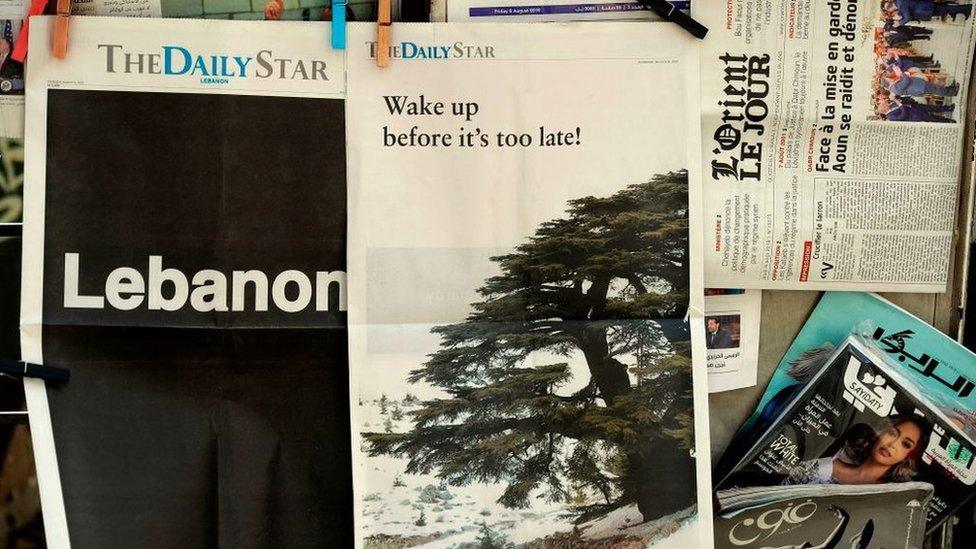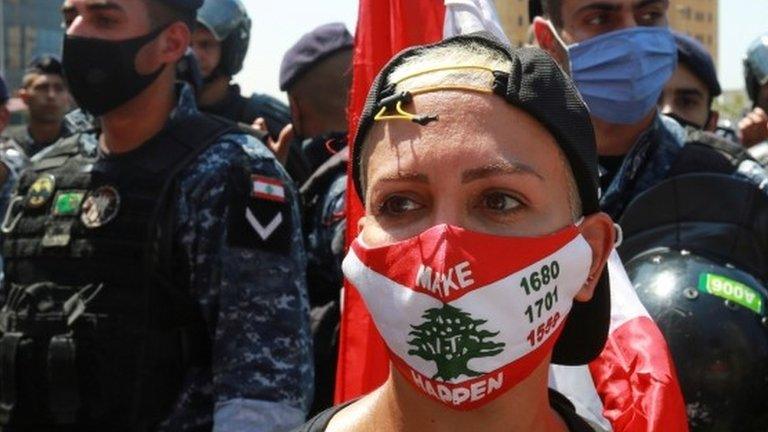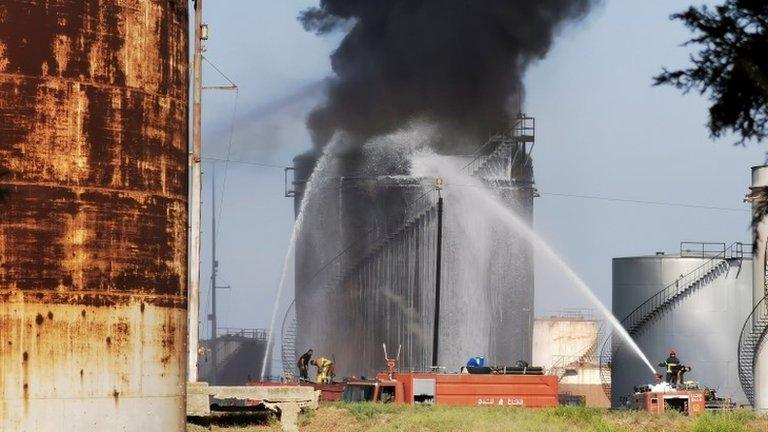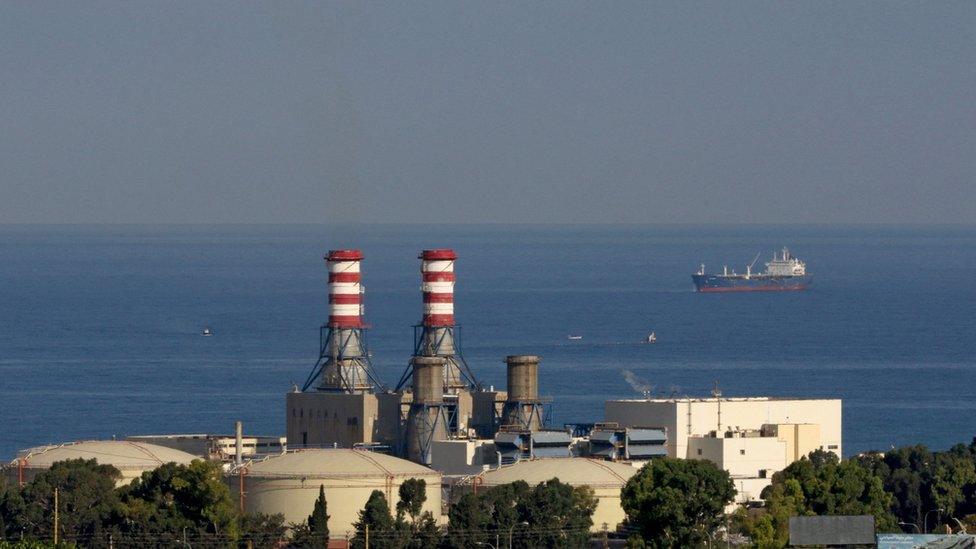Daily Star: Lebanon's crisis forces oldest English newspaper to close
- Published

The Daily Star did not publish news articles in its 8 August 2019 print edition to protest against the crisis in Lebanon
Lebanon's oldest English-language newspaper, The Daily Star, has closed down, in a further sign of the country's deepening economic crisis.
Editor-in-chief Nadim Ladki emailed its journalists to say "with a heavy heart" that all staff were being laid off.
The Daily Star was founded in 1952, becoming one of the Arab world's first English-language newspapers.
It was read by audiences around the world and became a launchpad for many Lebanese and foreign reporters.
One of them, Reuters news agency correspondent Timour Azhari, tweeted that many current staff had not been paid for months.
Allow X content?
This article contains content provided by X. We ask for your permission before anything is loaded, as they may be using cookies and other technologies. You may want to read X’s cookie policy, external and privacy policy, external before accepting. To view this content choose ‘accept and continue’.

Allow X content?
This article contains content provided by X. We ask for your permission before anything is loaded, as they may be using cookies and other technologies. You may want to read X’s cookie policy, external and privacy policy, external before accepting. To view this content choose ‘accept and continue’.

The Daily Star suspended its publishing operation twice during Lebanon's 1975-90 civil war and relaunched in 1996.
The newspaper's print edition stopped in February 2020, and its website had not been updated since 13 October, which it said at the time was "due to circumstances beyond our control".
It had been struggling financially for years, despite its purchase a decade ago by the family of former Prime Minister Saad Hariri.
The family also owned the Future TV channel and the Arabic-language newspaper Al-Mustaqbal, which both closed down in 2019.
Lebanon: A country plunged into darkness
Lebanon is in the midst of one of the most severe and prolonged economic depressions the world has seen in more than 150 years.
Its currency has lost more than 90% of its value against the US dollar since 2019, causing inflation to soar, and pushing three-quarters of the population into poverty.
Many people can no longer afford food, medicine and other essentials, while fuel shortages have severely affected the operations of power plants, water pumping stations and hospitals.
Related topics
- Published27 October 2021

- Published11 October 2021

- Published10 October 2021
